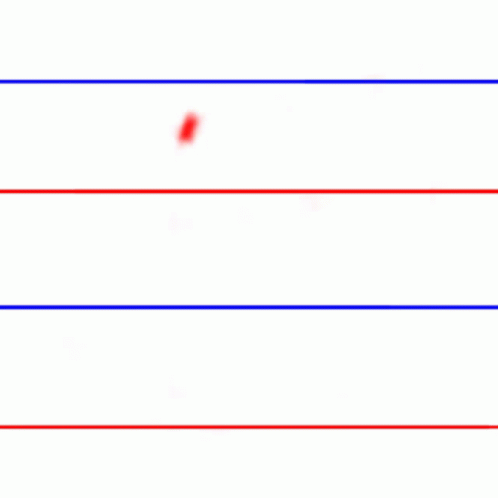
Written by Annamaria
14 Dec 2022
I’ve always had good grades in high school. I knew how the system works and what to learn to succeed. Even though I expected university to have a slightly different system, I never thought of the idea that I might fail. It doesn’t happen to everybody but it happens at least once to most people. Failing is not necessarily a bad thing, especially when you know what to do next.

Grading system
Most of the universities in Sweden follow the ECTS grading scales, meaning you are simply graded by letters:
- A – amazing
- B – better than average
- C – cool
- D – definitely not the worst
- E – essential to at least pass
- F – failed, sorry
DISCLAIMER: These are not the official definitions obviously but it gives an idea of the emotion you’ll experience when you receive the grade.
It might happen that certain courses won’t be graded this way and it will simply be pass/fail. This probably takes off pressure of some people because you don’t need to focus and having excellent results any more. Oh… since we are in Sweden, the words pass and fail have its own name:
- VG – Väl godkänd (Passed with distinction) – some universities don’t use this grade
- G – Godkänd (Passed)
- U – Underkänd (Fail)
What are they grading?
Good question, dude!
Every course you register for consists of a certain number of credits. The more credits the course has, the more assignments it has (usually). This means that the course credits gets split into:
- group/individual projects
- reports or essays
- quizzes
- smaller assignments
- written exams
The course is basically a combination of some of these. Written exams are often the ones that determine your final grade since those are graded with the lettering system. The rest of the things are typically only pass/fail. But there are courses where you won’t have a written exam, instead your grade will be determined via a combination of smaller assignments. A lot of possible options, I know.
Don’t worry though, it won’t be confusing because all will be written on your Student Portal once you register.

What if you fail?
Honestly, it might happen at some point. It’s not anything disastrous though. Let me tell you my story…
This semester I had two overlapping courses. One course required a lot of my energy (Human Physiology) and the other (Methods and Design) got kind of neglected. At the end of October I had a Methods and Design exam.
I was catching up with all the studies the night before but I really felt like I could do okay. The software we worked with reminded me of Excel so it should be alright.
I came to the designated exam room. I showed the teacher my ID card – this is always required by the way. And I turned on the computer.

As I went through the questions one by one, I was like: “Huh, that’s eaaaasy!”, hence the picture. I didn’t laugh though because that would be awkward. 😂
And so after answering all the questions, I counted the points that I’ll probably get and uploaded the exam. I went home certain that I’m getting a B. Usually, you have to wait up to 3 weeks to receive the grade but for this exam since it was in electronic form, we had it in the evening.
I didn’t check it though because “I have a B, so who cares?”.
The next morning I opened Student Portal to check my schedule for the next day. I only opened notifications because I had more than one. And that’s when I saw it… I got an F!

I won’t lie, I was shocked and disappointed. I didn’t understand why I failed, so I went to look at the exam results. That’s when I realised what happened. I failed an objective.
What is an objective?
Every course that you take has one or more objectives which describes what the student should learn from it.
Our course had 3 objectives and the exam questions were divided based on these objectives. To pass, you needed to have at least 50% of answers from each objective correct. So even when I had a lot of points, I failed an exam because I didn’t have enough points in one of the main objectives. So, I had to do a retake.
What you can do to prepare for the retake exam?
Set the right mindset
One important thing that we often forget about is the power of our thoughts. When you believe that if you put enough effort into something, you’ll get rewarded, you are closer to succeeding.
Think positively and set attainable goals. Don’t aim for perfection!
Create a good review strategy
Normally, you have about a month to prepare for the retake exam. At our university, we have only one retake option but at some you have up to four.
Make sure you create a strategy to review each objective/topic included withing the course. Since I was busy with the other course, I only dedicated one week for the review. But I planned it well, estimating how many hours it will take to study each topic. I divided these hours within the days in the week using my Google Calendar app since it allows you to create time boxes. That way I could see how much time I truly have and need to prepare.

Although having a good strategy is a great first step, make sure to also follow the plan that you lay out. That’s where I always struggle the most but I think it is a little easier to get disciplined when it’s a retake exam.
Don’t forget to sign up
A week before the exam (or sooner), you’ll probably get a notification telling you to sign up for the exam. It’s very important to do so right away, otherwise you won’t be allowed to take it. If the notification does not show up, maybe you’re signed up automatically but I would still ask the teacher to make sure.

I’d like to say that if you put in the work, you’ll definitely pass. You have the advantage that you already know the exam set-up and you might be able to predict the type of questions they’ll ask.
But certain topics can be tough and you don’t always receive the result that you wish for. You need to remember that it’s okay. There’s always a way to solve it, just make sure to talk to your teachers and study advisors because they are there to help you get through the studies as smoothly as possible.
I got an A on the retake exam by the way, hope you’ll get yourself one too!
Good luck!
Annamaria




